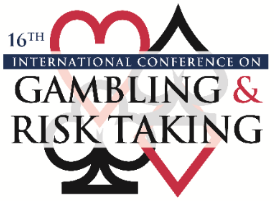The Welfare Evaluation of Gambling Behavior: Evidence from Experiments
Session Title
Session 3-2-B: The Meaning of Responsibility in Gambling
Presentation Type
Event
Location
The Mirage Hotel & Casino, Las Vegas, Nevada
Start Date
9-6-2016 10:30 AM
End Date
9-6-2016 12:00 PM
Disciplines
Behavioral Economics | Cognition and Perception | Economics | Economic Theory | Experimental Analysis of Behavior
Abstract
Gambling behavior generates sizeable expenditures in virtually every country in the world. In some cases it is closely regulated and even operated by governments, and in virtually all countries legal gambling generates massive tax revenues. The vast bulk of the games that generate these expenditures and revenues have a known, negative expected value. We consider the welfare evaluation of gambling behavior in such games, as welfare is defined by economists, and contrast that welfare evaluation with conventional survey measures of “problem” gambling behavior. We demonstrate our methodology using controlled laboratory and field experiments with video slot gambling behavior. Experimental treatments include the use of single payline or multiple payline machines, the use of abstract tokens or actual currency, stake size, and the display of “near miss” information. Complementary experiments measure risk preferences and subjective beliefs about video slot outcomes. The lab experiments also collect responses to popular survey measures of gambling prevalence. The field experiments go further, and sample from respondents characterized as “problem gamblers” in those surveys, as well as control subjects with “no detectable risk.” This sample design also allows an evaluation of the predictive validity of those survey measures for actual gambling choices over real money.
Keywords
Gambling behavior, video slot machines, welfare, risk attitudes, lab experiments, field experiments, near misses, losses disguised as wins
Streaming Media
The Welfare Evaluation of Gambling Behavior: Evidence from Experiments
The Mirage Hotel & Casino, Las Vegas, Nevada
Gambling behavior generates sizeable expenditures in virtually every country in the world. In some cases it is closely regulated and even operated by governments, and in virtually all countries legal gambling generates massive tax revenues. The vast bulk of the games that generate these expenditures and revenues have a known, negative expected value. We consider the welfare evaluation of gambling behavior in such games, as welfare is defined by economists, and contrast that welfare evaluation with conventional survey measures of “problem” gambling behavior. We demonstrate our methodology using controlled laboratory and field experiments with video slot gambling behavior. Experimental treatments include the use of single payline or multiple payline machines, the use of abstract tokens or actual currency, stake size, and the display of “near miss” information. Complementary experiments measure risk preferences and subjective beliefs about video slot outcomes. The lab experiments also collect responses to popular survey measures of gambling prevalence. The field experiments go further, and sample from respondents characterized as “problem gamblers” in those surveys, as well as control subjects with “no detectable risk.” This sample design also allows an evaluation of the predictive validity of those survey measures for actual gambling choices over real money.


Comments
Audio recording of this presentation is attached as a downloadable MP3 audio file, 79.3 MB